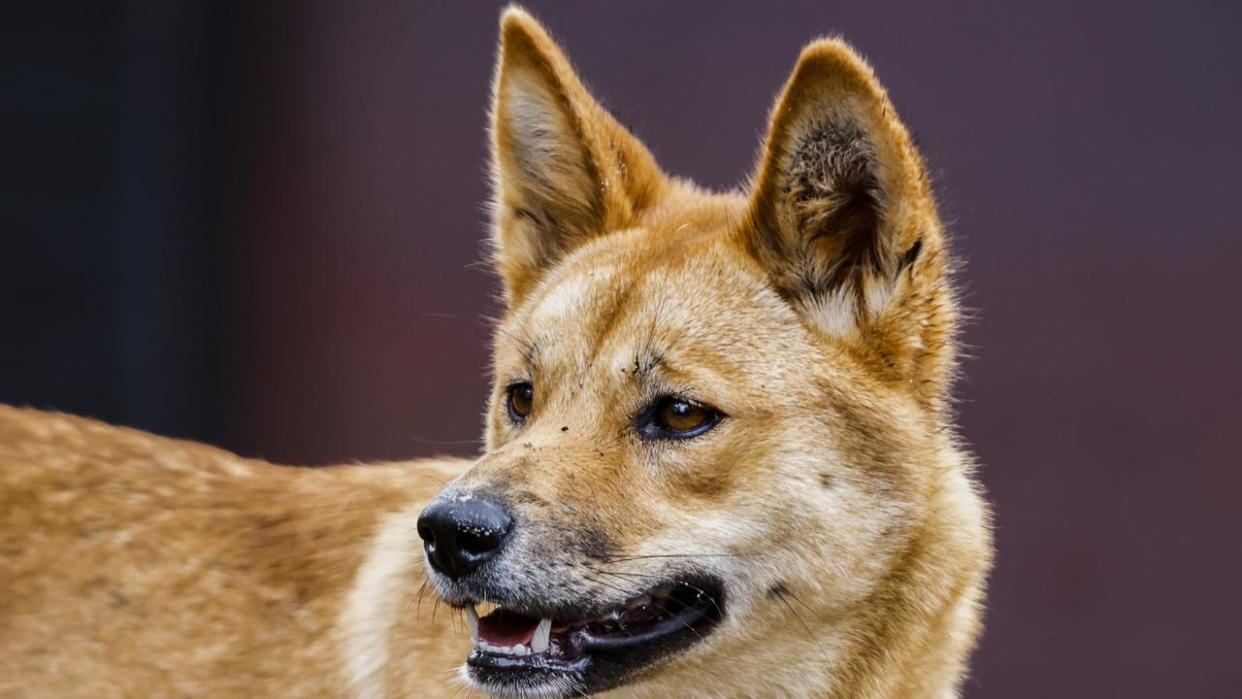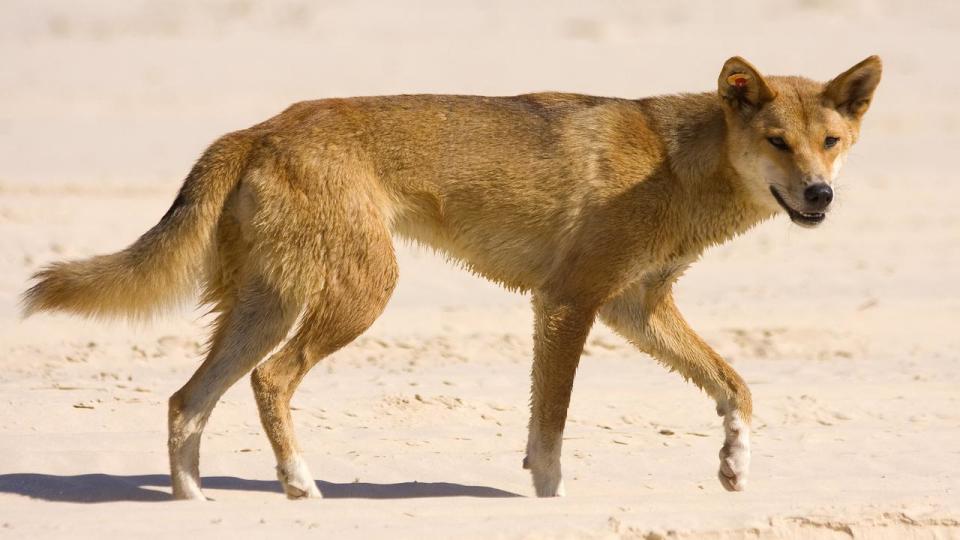Dingo put down after horror attack

One of the dingoes who ferociously mauled a young female jogger on K’gari has been euthanised following the attack.
The male dingo is believed to have been the leader of four dogs who chased the woman near Orchid Beach on Monday morning, forcing her into the water and biting her more than 30 times on her arms, legs and torso.
The incident could have been fatal if it weren’t for two men who ran into the surf and forced the wongari (dingoes) off her, injuring themselves in the process authorities said.

Known to rangers at the Queensland tourist destination, formerly known as Fraser Island, the wongari had been collared after it was involved in other attacks this year.
The previous attacks were taken into account when deciding whether the animal should be put down a Department of Environment spokesman said.
“Euthanising a high-risk dingo is always a last resort, and the tough decision by the Queensland Parks and Wildlife Service was supported by the island’s traditional owners, the Butchulla people,” he told the Courier Mail.
“The wongari (dingo) has been responsible for recent threatening and biting incidents, including the hospitalisation of a six-year-old girl and the 23-year-old
“The QPWS extends its sympathies to the woman and hope she makes a speedy recovery, and we would like to thank the people who came to her aid.”
According to the spokesman, the wongari’s “heavy” weight of 17 kgs indicated it had been fed by humans.

“It was also clear from its behaviour that it had become habituated, either by being fed or from people interacting with it for videos and selfies,” he said.
“The animal had lost its natural wariness of people, and entering campsites or loitering around people is not normal dingo behaviour.”
The search is still on for the three other animals involved in the attack, but no decision has been made about whether they will be euthanised.
In the wake of the attack, bins of PVC piping – dubbed “dingo sticks” – have been placed around the island to arm tourists against the dingoes.
While euthanisation is considered a “last resort”, it isn’t unheard of on the island.
A dingo was destroyed early last month after it was filmed biting a tourist sunbathing on the beach – the first wongari to be put down since 2019.
Following the June 16 incident in which the 10-year-old boy was attacked in front of a camping area, rangers said tourists were to blame for the “current and historic” incidents with the wongari.
Assistant principal ranger Danielle Mansfield said the animals’ increasingly brazen behaviour was caused by visitors deliberately or inadvertently feeding the dingoes.
“This has to stop now, and people have to make (visitors’) personal safety and the safety of their friends and families a priority,” she said.

Ms Behrendorff said the woman had been alone on a run when she caught the attention of the pack that was known to be “comfortable” with the Orchid Beach area.
“Unfortunately, for this woman this morning, she was alone and ended up in a situation that was quite compromising to her because of that,” she said.
“Don’t run, they will chase you.”
It was not unusual that the wongari pursued the woman into the ocean, as it is a method commonly used by the animals when hunting prey such as wallabies.
They push their prey into the water to tire it out before killing it.

 Yahoo Lifestyle
Yahoo Lifestyle 
